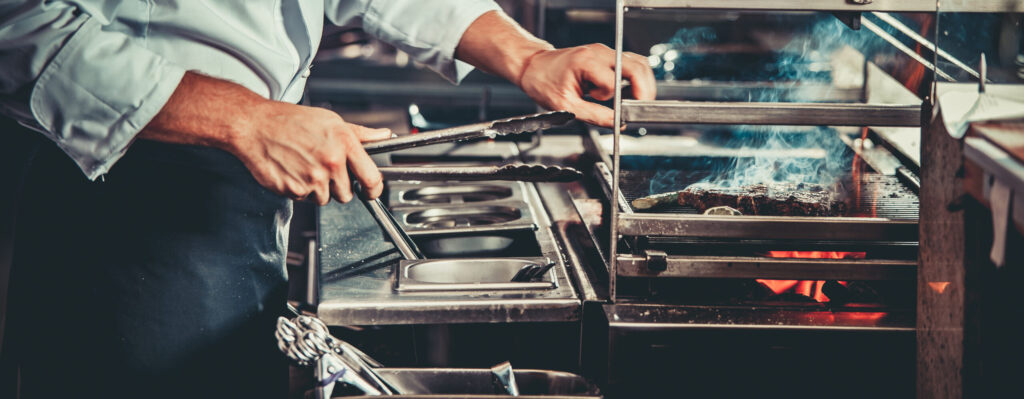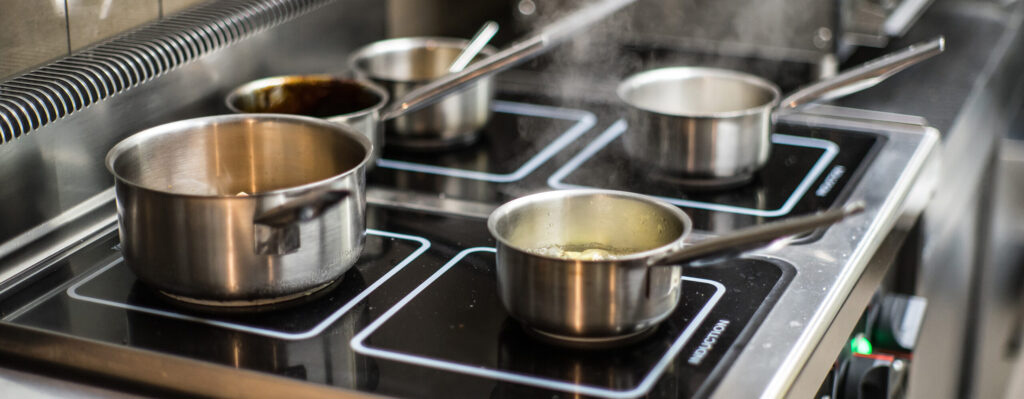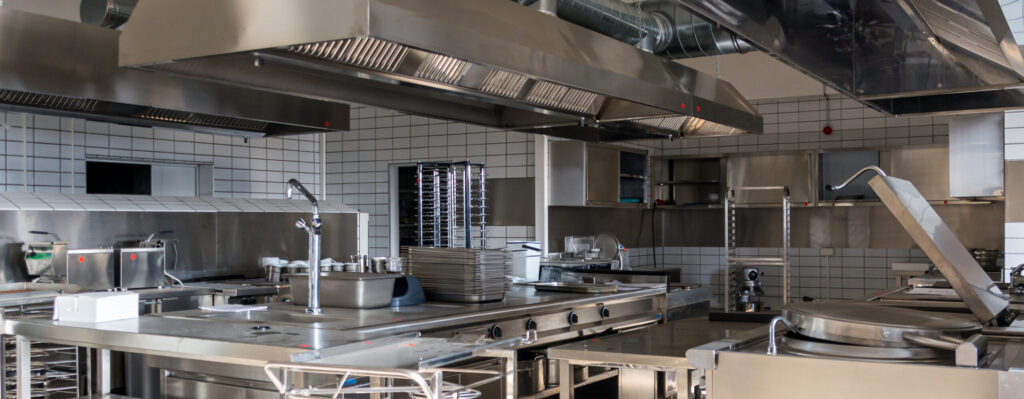Gas or electric? That question comes up a lot in our line of work—and the answer (like many others) is that it depends on your needs.
Selecting your equipment is one of the most important decisions you have to make upfront when building your commercial kitchens. It affects everything, including your output, costs, kitchen flow, and food quality.
Let’s dive into the gas vs. electric debate to help you make this critical decision.
Do chefs prefer gas or electric appliances?
Generally speaking, chefs prefer gas appliances for several reasons. Mind you, induction units win on many of these fronts, but adoption is slow due to costs and learning curves. For now, we’ll stick with the straight gas vs. electric debate.
Temperature control
Gas appliances have much more flexible temperature control than electric ones. While electric kitchen appliances can provide more exact temperatures, they’re still slower to adjust to temperature control. With gas, you can twist the knob to immediately shrink or grow the flame, allowing you to change the heat instantly. Whether your Bechamel needs to boil or your Veloute needs to simmer, gas is better for avoiding burning or scorching foods.

Speed to heat
Additionally, electric appliances take longer to reach the desired temperatures. Since the controls on a gas appliance directly affect the flow of natural gas, chefs can make quick temperature changes as needed. At the same time, electric appliances, with the exception of induction, are slow to heat up, slow to respond, and slow to cool down.
You can’t replace an open flame
Chefs love the option to cook their food on an open flame. From tortillas to peppers to meat, there’s no replacement for the taste of a flame-kissed meal.
Areas where electric wins
Despite gas winning on chef preference and cost, electric appliances do come out on top in a few key areas. Here are some of the benefits of electric commercial kitchen appliances.
Even, dry heat
Whether you’re serving up a loaf of artisan bread, a succulent chicken or a pan of curried butternut squash, having a crispy brown exterior makes all the difference. Electric oven elements deliver consistent and dry heat, making it ideal for baking and producing crisp textures at precise temperatures.

Safety
Cooking with electricity will always be safer than gas. There have been increasing concerns about the safety of gas appliances. Besides the potential for a gas leak, there are concerns about potential carcinogens and greenhouse gasses released when used. Electricity is generally safer and better for the environment.
Cleanliness
Most electric appliances have smooth surfaces, which are easier to clean than gas alternatives.
Space and portability
Because many (but not all) electric stovetops have smooth tops, it’s easier to clean and make use of the space as an extra countertop when not actively in use. It’s also easier to move and use in different areas of your kitchen since you don’t need a connection to a gas line. One caveat, however, is portability depends on the type of electrical outlet required and how much amperage the piece of equipment uses. (This information can typically be found on the piece of equipment’s spec sheet).
